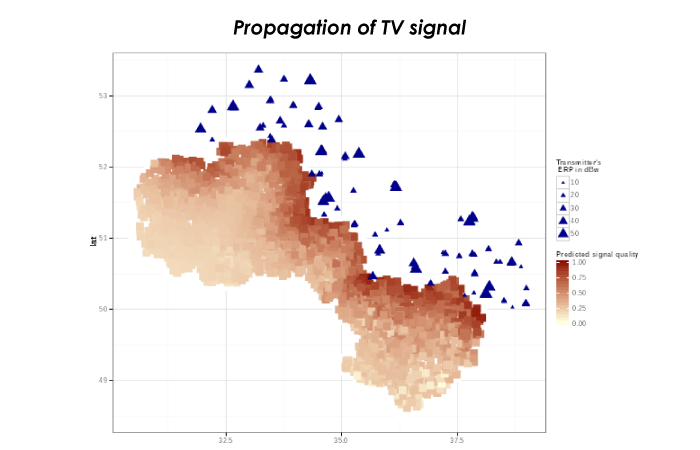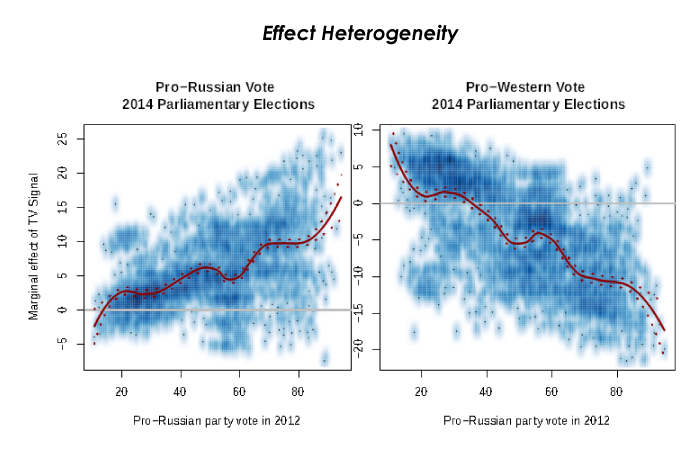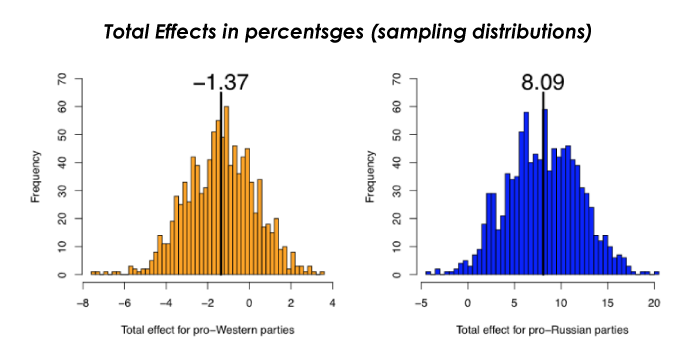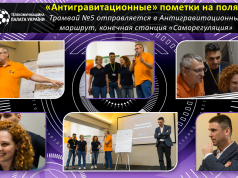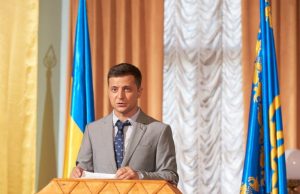The influence of Russian television on Ukrainian voters has been obvious enough for a long time.
The data is persuasive as well, there is a correlation between the power of Russian analogue transmitters and the political preferences of the Ukrainian TV-viewers.
Leonid Peisakhin (Assistant Professor of Political Science, New York University, Abu Dhabi) presented in Kyiv, Ukraine, the research “Persuasion and Dissuasion with Biased Media: Russian Television in the Ukraine” made jointly with Arturas Rozenas (New York University, New York) in border districts of Ukraine to compare the results of elections with availability of Russian TV channels.
We shall recall, since March 2014 16 Russian channels were banned on cable because of reasons of information security, to avoid propaganda. Now Russian TV is available only via analog close to the Russian border or via satellite. Before, many Ukrainian viewers in border districts had watched analogue terrestrial TV as well.
Analogue signal strength is not the same in every town and depends on distance to transmitters, radiating power and topography. The political views depend on the signal strength.
The researcher noted that “exposure to Russian television increases the support for pro-Russian candidates and political parties by 12 percentage points and decreases the support for pro-Western candidates and parties by 8 percentage points. To contextualize this effect, as the quality of Russian TV signal improves by one standard deviation, the vote for pro-Russian parties rises by 2.3 percentage points and drops for pro-Western parties by 1.4 percentage points”.
The next interesting thing is polarizing effect. “Precincts that have historically voted for pro-Russian candidates are even more likely to vote for pro-Russian candidates as a result of exposure to Russian television. The effect is reversed for historically pro-Western precincts. There, exposure to Russian TV leads to an even higher support for pro-Western candidates”, says Mr. Peisakhin.
The main conclusions are:
– Russian TV has substantially increased the votes for pro-Russian parties in the 2014 presidential and parliamentary elections.
– It polarizes the voters: those with a pro-Russian bias are persuaded and voters with pro-Western bias are dissuaded.
Leonid Peisakhin mentioned future research plans. They plan to investigate individual level evidence, engage additional sources of identification (apartment, building, floor…). They are also waiting for research of competitive propaganda: comparing zones with both Russian and Ukrainian TV available and those ones with only Russian and only Ukrainian.




